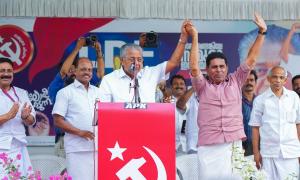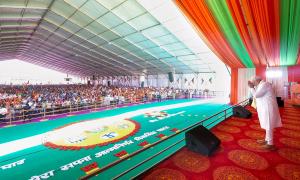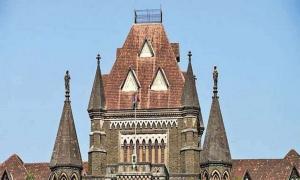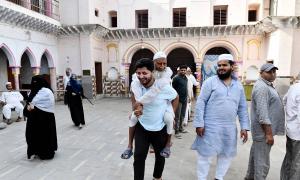United States Senator Richard Lugar, Indiana Republican, who is chairman of the powerful Senate Foreign Relations Committee, whose approval is imperative if the proposed US-India civilian nuclear agreement is to make any progress in Congress, has effectively confirmed that President George W Bush when he visits India sometime in late Feburary as has been strongly rumored, will go empty-handed with no consummated deal to gift to New Delhi.
Following a meeting with senior Indian policy makers and business leaders, including the likes of Ambassador S K Lambah, special envoy, Prime Minister's Office, ex-ambassadors to the US Naresh Chandra and K Shankar Bajpai, and former chief of air ataff Redt Air Chief Marshall S Krishnaswamy, in Washington, to participate in the 'US-India Strategic Dialogue' as part of a task force of the Aspen Strategy Group, Lugar said the debate regarding the US-India civilian nulear cooperation agreement "has not progressed very far on Capitol Hill".
In a statement made available to India Abroad, after the meeting by his office, Lugar said, "The Foreign Relations Committee has held one hearing involving Under Secretaries of State Nick Burns and Bob Joseph, as well as outside experts, and there have been a number of closed briefings at the staff level."
But he said, no action on any proposal the administration may submit even if India presents a plan of separating its civil and military nuclear facilities which some say may be in the office when Foreign Secretary Shyam Saran visits Washington for a meeting with Burns sometime this week that the administration can go to bat with, is likely till February 2006 at the earliest.
"The committee will not likely return to the subject until February 2006, although Secretary Burns and I continue with our consultations," Lugar said.
"Today, the debate is focused on the Indian government's civil-military separation plan," he said and added the committee appreciates that "the Indian side is working hard on the elements of a plan to separate civil and military facilities and programmes".
But Lugar, considered one of the fiercest nonproliferation advocates in Congress, who is the darling of the nonproliferation lobby in the United States, said, "The point that I want to emphasise is that this plan, firstly, must be credible; secondly, it must be transparent; and lastly, it must be defensible from a nonproliferation standpoint."
Lugar argued that "while the Bush administration has, I think, been very clear in discussions with the Indian government about its expectations, let me emphasise that any Indian plan will have to pass muster with the United States Congress."
He said that "the civil-military separation plan is the next hurdle to be surmounted in moving forward with the nuclear cooperation agreement," and a senior staffer on the committee told India Abroad that once the plan is submitted to the US and Burns -- the point man for working the deal in Congress comes to the committee with it, "the separation part of it would be run through like you bet, a fine tooth comb, by some of the leading technical and nonproliferation experts who advise Senator Lugar."
"So, yes, even if the separation plan is credible and transparent, and not simply a token effort, it's going to take months of scrutiny before it will be given any kind of green light by the (Senate Foreign Relations) Committee, which the administration can run with," the staffer said.
Consequently, the staffer said, "President Bush going to India sometime early 2006, with the deal in hand -- forget it, it's just not going to happen."
Senior Bush Administration officials had also told India Abroad that "the ball is now in India's court," with regard to convincing Congress to back the deal and that when Saran arrives in Washington they are hoping that he arrives with "a credible plan of separating India's civil and military nuclear facilities".
He predicted that his committee would "likely judge the efficacy of the Indian separation plan in terms of three key criteria," which he said would be safeguards, non-assistance, and transparency.








More from rediff